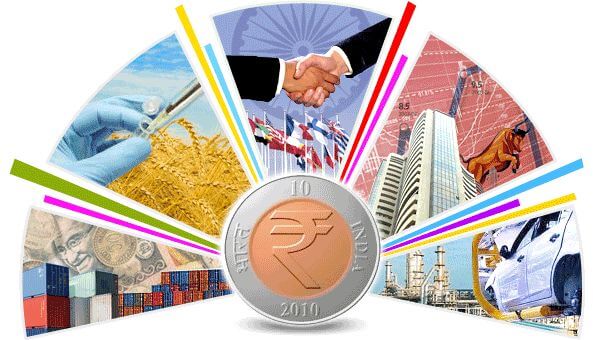
MUMBAI: The government must resist the temptation for a fiscal stimulus and instead concentrate on repairing the supply chains which have been disrupted by demonetisation and problems linked to the new Goods and Services Tax (GST), JP Morgan said in a note on Thursday.
“The economy is in the midst of an adverse supply shock. Countering this with a fiscal stimulus – as some are advocating – will only further accentuate external imbalances,” JP Morgan economists Sajjid Chinoy and Toshi Jain said in the note.
India’s GDP growth has slipped from a peak of 7.9% in the first quarter of the last fiscal year to to 5.7% in the first quarter of the current fiscal year, a three year low resulting in talk about heightened government spending to help in revival.
How JP Morgan said that a stimulus will be the “wrong medicine” and could worsen the situation. The current growth slowdown however started in the last fiscal year mainly due to a rolling off the windfall from the drop in global oil prices and fall in credit appetite due to the de-leveraging of bank balance sheets.
As a result India’s growth slipped from 9.1% in the quarter ended March 2016 to 7.5% in the quarter ended September 2016, or levels before the collapse of oil prices. That has now been accentuated because of demonetisation and GST.
The negative supply side shocked caused due to demonetisation has disrupted supply chains and have resulted in higher manufacturing imports into India. “Since demonetisation, (imports) have been growing at 13%. The increase is across the board – gems and jewelry, electronics, paper, plastics and chemicals. Stronger imports alone subtract 300 bps from headline growth – even after adjusting for imports that are re-exported. Therefore, stronger imports can explain the entire slowdown since demonetization, and then some,” JP Morgan said.
In simple words, manufacturing sector involving small and medium enterprises post-demonetization has been replaced by imports. “What then is the appropriate policy response? If it’s a transient supply shock, it will self-correct and policy should look through it. But even if it lingers, we should not respond to a negative supply shock with a positive demand impulse. Expansionary fiscal or monetary policy is unlikely to rehabilitate disrupted supply chains,” JP Morgan said.
“Instead…. a fiscal stimulus – in the wake of an adverse supply shock – will simply stoke more imports and result in a larger current account deficit. In the current global environment – with growing risks of a simultaneous normalization by the Fed and the ECB – the last thing India needs is fiscal adventurism (particularly against the backdrop of worsening state finances) that ends up further pressurizing external imbalances, with the CAD already widening to 2.4% of GDP,” the note said.
The economists suggested supply side solutions like continuing improvements in regulatory and business environment for SMEs, improve their access to credit, urgently resolve teething GST problems and simplify the burdens of firms competing in the formal sector. Also, ensuring that the asset resolutions in the banking sector is solved.
“India’s economic history is replete with the same lessons. Every time policymakers trade off some macroeconomic stability for growth, the economy ends up with neither. The current government has heeded these lessons remarkably well, and shown admirable fiscal restraint. We shouldn’t blemish that record now,” JP Morgan said.
Source: Economic Times

Leave a Reply